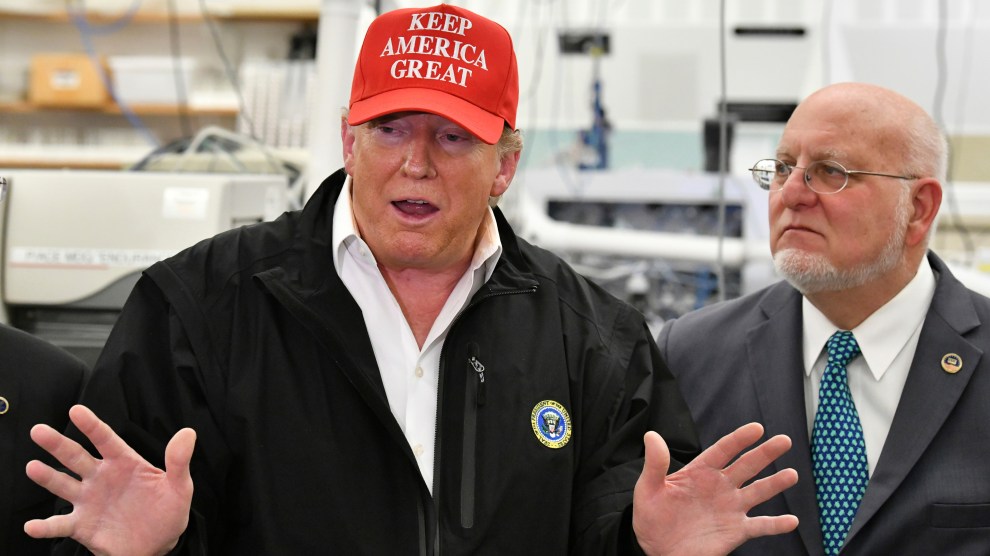(a) An employee may not engage in political activity—
(b)
(2) Paragraph (1) applies to an employee—
(B) who is—
~5 U.S. Code § 7324
 Perhaps you are more familiar with the above citation as the Hatch Act of 1939 which restricts political activities by federal employees and state or local officials associated with programs paid with federal funds. And if you read the text you have to ask, “How on earth could Donald Trump’s infamous March 6, 2020 field trip to the Center for Disease Control in Atlanta (between golf outings at Mar-a-Lago) not violate the law?” Let’s examine this occasion, provision by provision.
Perhaps you are more familiar with the above citation as the Hatch Act of 1939 which restricts political activities by federal employees and state or local officials associated with programs paid with federal funds. And if you read the text you have to ask, “How on earth could Donald Trump’s infamous March 6, 2020 field trip to the Center for Disease Control in Atlanta (between golf outings at Mar-a-Lago) not violate the law?” Let’s examine this occasion, provision by provision.
- Trump was on duty. CHECK
- He was at the CDC, an agency of the United States government. CHECK
- He was wearing a jacket with the presidential seal. CHECK
- He was transported in government vehicles. CHECK
And yet he engaged in political activity by wearing a baseball cap embroidered with his 2020 presidential campaign slogan, “Keep America Great.”
For the record, federal officials covered under the act are allowed under subsection (B) to participate in political activities outside of their normal duties and responsibilities “if the costs associated with that political are not paid for by money derived from the Treasury of the United States.” For example, both the Democratic and Republican National Committees provide space in their D.C. headquarters for members of Congress to make fundraising phone calls, since use of their Congressional offices would violate the prohibition on the use of public monies. However, in the case of the visit to the CDC, Trump was within his normal duties and the costs were covered by Treasury.
What is the penalty for violations of the Hatch Act? According to §7326 of the code, “An employee or individual who violates section 7323 or 7324 of this title shall be removed from his position, and funds appropriated for the position from which removed thereafter may not be used to pay the employee or individual.” Of course, prosecutions of the law are the responsibility of the attorney general and his Department of Justice. (You can stop laughing now.)
But for once, Bill Barr is blameless. §7322. DEFINITIONS states, “For purposes of this subchapter–(1) ’employee’ means any individual, other than the President and Vice President.” Remember all the senators and representations, during the impeachment process, who claimed no one, even the president of the United States, is above the law (though some actually meant it). Well, if you REALLY want everyone, including the president to be treated equally, it just might help if you made them SUBJECT to the law. Congress, are you listening?
For what it’s worth.
Dr. ESP